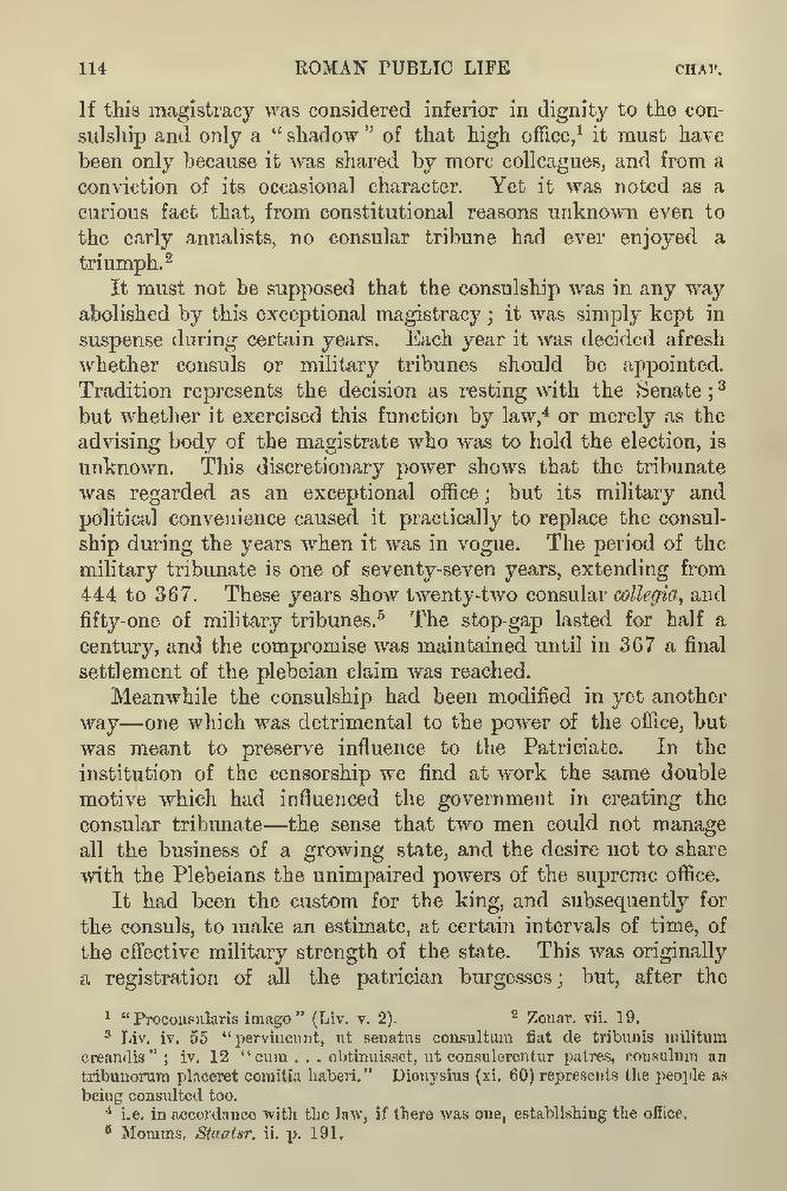If this magistracy was considered inferior in dignity to the consulship and only a "shadow" of that high office,[1] it must have been only because it was shared by more colleagues, and from a conviction of its occasional character. Yet it was noted as a curious fact that, from constitutional reasons unknown even to the early annalists, no consular tribune had ever enjoyed a triumph.[2]
It must not be supposed that the consulship was in any way abolished by this exceptional magistracy; it was simply kept in suspense during certain years. Each year it was decided afresh whether consuls or military tribunes should be appointed. Tradition represents the decision as resting with the Senate;[3] but whether it exercised this function by law,[4] or merely as the advising body of the magistrate who was to hold the election, is unknown. This discretionary power shows that the tribunate was regarded as an exceptional office; but its military and political convenience caused it practically to replace the consulship during the years when it was in vogue. The period of the military tribunate is one of seventy-seven years, extending from 444 to 367. These years show twenty-two consular collegia, and fifty-one of military tribunes.[5] The stop-gap lasted for half a century, and the compromise was maintained until in 367 a final settlement of the plebeian claim was reached.
Meanwhile the consulship had been modified in yet another way—one which was detrimental to the power of the office, but was meant to preserve influence to the Patriciate. In the institution of the censorship we find at work the same double motive which had influenced the government in creating the consular tribunate—the sense that two men could not manage all the business of a growing state, and the desire not to share with the Plebeians the unimpaired powers of the supreme office.
It had been the custom for the king, and subsequently for the consuls, to make an estimate, at certain intervals of time, of the effective military strength of the state. This was originally a registration of all the patrician burgesses; but, after the
- ↑ "Proconsularis imago" (Liv. v. 2).
- ↑ Zonar. vii. 19.
- ↑ Liv. iv. 55 "pervincunt, ut senatus consultum fiat de tribunis militum creandis"; iv. 12 "cum . . . obtinuisset, ut consulerentur patres, consulum an tribunorum placeret comitia haberi." Dionysius (xi. 60) represents the people as being consulted too.
- ↑ i.e. in accordance with the law, if there was one, establishing the office.
- ↑ Momms. Staatsr. ii. p. 191.
